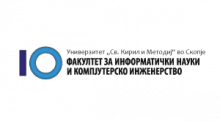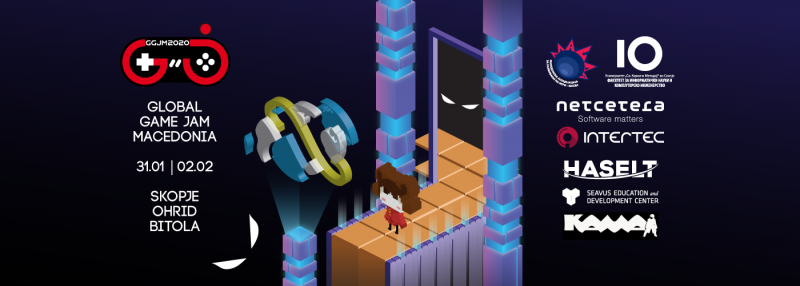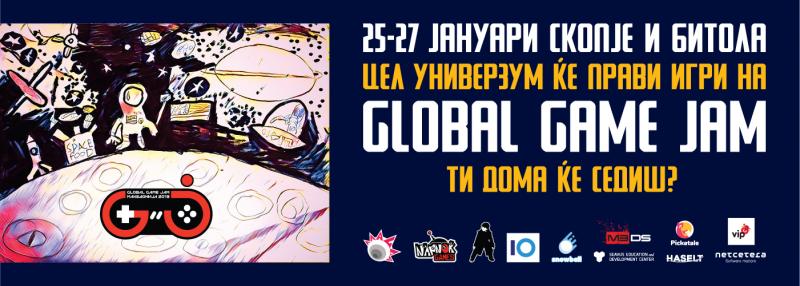Software Engineering (3+1+1)
1. General Information
The second cycle studies in software engineering aim to provide quality and top European education and training of software engineers who will be able to bear the technical and economic responsibility of designing, developing, using and maintaining complex software systems. Upon completion of their studies, these engineers will be able to take responsible positions in the processes of planning, designing, developing and running software projects, including their business aspects.
- Name of the proposer: University "Ss. Cyril and Methodius University in Skopje, Faculty of Information Sciences and Computer Engineering - FINKI
- Study Program Name: Academic Second Cycle Software Engineering Studies
- Scientific-research area: technical-technological (2)
- Field: Computer Science and Informatics (212)
- Area: Software Engineering
- The value of postgraduate studies is 60 ECTS or 120 ECTS credits .
- Duration of studies: 2 or 4 semesters .
- One academic year consists of two semesters lasting 30 weeks (1 semester = 15 weeks).
- The first semester consists of subjects, while the second has a smaller number of subjects and is reserved for the final project, ie. for the master's thesis.
- Admission Requirements : Completed undergraduate studies in the field of informatics or computer technology and informatics with a minimum of 240 credits. For study directions that carry less than 240 credits, exams offered in the introductory layer are added.
- Introductory layer : Students who have earned less than 240 credits during their studies are offered a set of differential introductory courses. After their successful realization, the student acquires the right to continue with the second year of postgraduate studies.
- First semester: 3 compulsory courses and 2 electives, one of which may be from the University list.
- Second semester: 1 compulsory and 1 elective, which can be from the university list (only if in the first semester the subjects are selected at the Faculty level) and a final project of 18 ECTS
- 1 ECTS credit corresponds to 30 hours of total work engagement
- The number of contact hours is 4
- The academic title or degree obtained after graduation is
- Master in Information Science and Computer Engineering in the field of Software Engineering
2. Introductory layer
The introductory layer is intended for students who study for less than four years or have earned less than 240 credits from previous studies.
Table 1: List of introductory layer items
| РБ | Subject | Semester | ECTS |
| 1 | Mandatory subject 1 From Table 2 | VII | 6 |
| 2 | Mandatory subject 2 From Table 2 | VII | 6 |
| 3 | Mandatory subject 3 From Table 2 | VIII | 6 |
| 4 | Mandatory subject 4 From Table 2 | VIII | 6 |
| 5 | Elective course 1 1 | VII | 6 |
| 6 | Elective 2 1 | VII | 6 |
| 7 | Elective course 3 1 | VII | 6 |
| 8 | Elective 4 1 | VIII | 6 |
| 9 | Elective course 5 1 | VIII | 6 |
| 10 | Selection from the university list of free courses | VIII | 6 |
[1] Selection from the lists of subjects from the introductory layer of all master studies at the Faculty of Information Sciences and Computer Engineering
Elective courses can be selected from the proposed list of courses of the study program, Table 2, or from the proposed lists of courses from the introductory layer of other study programs of the Faculty of Information Sciences and Computer Engineering. The selection of courses should be made in accordance with the previous knowledge of the candidate and the necessary knowledge to continue with the postgraduate studies in software engineering. Only one free choice of subject is allowed which is on the university list of subjects for the first year of two-year postgraduate studies.
Table 2: List of items
| РБ | Code / Subject | Semester | ECTS | Prerequisite2 | |
| 1 | CSEW522 Advanced Web Design | VII | 6 | no | |
| 2 | CSEW519 Mobile platforms and programming | VII | 6 | Object-Oriented Programming | |
| 3 | CSEW702 Web based systems | VII | 6 | Network Programming | |
| 4 | CSEW514 Implementation of Free and Open Source Systems | VII | 6 | no | |
| 5 | CSEW313 Advanced Programming | VII | 6 | Object-Oriented Programming | |
| 6 | CSEW704 Integrated Systems Design | VIII | 6 | Databases | |
| 7 | CSES602 Security of computer systems | VIII | 6 | Operating Systems | |
| 8 | CSES616 Mobile Applications | VIII | 6 | Object-Oriented Programming | |
| 9 | CSES631 Software Quality and Testing | VIII | 6 | Software Engineering | |
| 10 | CSES634 ICT Project Management | VIII | 6 | no | |
[2] The titles of the courses are given according to the curricula of the undergraduate studies at the Faculty of Information Technologies and Computer Engineering, UKIM, Skopje. Students who have graduated from other institutions will have to show passed exams in subjects appropriate to the above in order to meet the prerequisites for the respective subject.
After the successful completion of all ten courses and 60 credits, the student with previously acquired 180 ECTS credits (or completed three-year studies) continues with the courses from the second academic year of postgraduate studies - Table 3 (IX and X semester).
3. Studies
Table 3: List of Postgraduate Courses
| РБ | CODE / Subject | Semester | M / E | ECTS |
| 1 | SI-Z-01 Software lifecycle management | IX | M | 6 |
| 2 | SI-Z-02 DevOps software development | IX | M | 6 |
| 3 | СE-M-03 Software Design Templates | IX | M | 6 |
| 4 | Elective | IX | E | 6 |
| 5 | Elective | IX | E | 6 |
| 6 | SI-Z-04 Software quality management | X | M | 6 |
| 7 | Elective | X | E | 6 |
| 8 | Master Thesis | X | M | 18 |
At least one elective should be chosen from the offered electives in Table 4. At most one of the electives can be chosen from the University list of master's degree programs. A maximum of two electives can be selected from the courses offered in the other second cycle studies at the Faculty of Information Sciences and Computer Engineering.
Table 4: Electives
| РБ | New code / Subject | Semester | ECTS | |
| 1 | SI-I-01 Time series analysis and forecasting | IX | 6 | |
| 2 | SI-02 Design of video games and special effects | IX | 6 | |
| 3 | СE-E-03 Medical Informatics | IX | 6 | |
| 4 | СE-E-04 Multimedia and scalable web | IX | 6 | |
| 5 | СИ-И-05 Model based software Engineering | IX | 6 | |
| 6 | SI-06 Critical systems software engineering | X | 6 | |
| 7 | СE-E-07 Engineering Ethics | X | 6 | |
| 8 | SI-08 ERP Business Systems Engineering | X | 6 | |
| 9 | СE-E-09 Software reliability | X | 6 | |
| 10 | СE-E-10 Shape Recognition | X | 6 | |
| 11 | SI-I-11 Decision Support Systems | X | 6 | |
| 12 | СE-E-12 System Integration | X | 6 | |
| 13 | СE-E-13 Software Architectures | X | 6 | |
| 14 | IS-I-06 Analysis and Design of Information Systems | IX | 6 | |
| 15 | IT-Z-02 Advanced mobile and web applications | IX | 6 | |
| 16 | ITMW01 Advanced Software Project Management | IX | 6 | |
| 17 | IT-I-05 Data visualization | IX | 6 | |
| 18 | КН-M-03 Formal methods | IX | 6 | |
| 19 | IT-Z-03 Internet Security & Privacy | IX | 6 | |
| 20 | IS-I-14 Multimodal interaction | X | 6 | |
| 21 | IS-I-18 Intelligent mobile applications | X | 6 | |
| 22 | ITMS01 Advanced Software Requirements Engineering | X | 6 | |
The student can choose a subject from the list of offered elective courses from all study programs of the second cycle of studies. The list of offered electives can be found on this link .




